Speaking at a press conference on Monday, Iran’s Foreign Ministry spokesman Nasser Kan'ani briefed on the latest developments in Iran's foreign affairs and answered a number of questions raised by the correspondents.
Regarding the visit of Iranian President Ebrahim Raeisi to New York to attend the UNGA meeting, Kan'ani stated that Iranian Deputy Foreign Minister for Political Affairs and Top Iranian negotiator in the Vienna talks Ali Bagheri Kani is accompanying president Raeisi during his trip to the US.
Answering a question on the possibility of holding a meeting in New York regarding negotiations to lift sanctions, the senior Iranian diplomat stated, "There is no defined program to talk about sanctions lifting negotiations within the framework of this trip, but international meetings are a good opportunity for political meetings and marginal talks between the officials of countries and an opportunity to exchange views on bilateral, regional and multilateral and international issues of interest."
"I do not rule out the possibility that there will be talks on the nuclear issue and sanctions lifting negotiations on the sidelines of the meeting," he continued, saying that Iran naturally uses every opportunity to express its views on issues of mutual and international interest.
Saying that Iran has never left the negotiation table and considers negotiations as a proper, logical, and reasonable way to resolve disputes, Kan'ani emphasized, "Iran will use every opportunity to express its constructive and rational views."
He added that the UN General Assembly is one of the opportunities for Iran in this regard.
In response to the question over the possibility of holding a meeting between Iran's foreign minister and Bagheri and the US officials in New York, Kan'ani cited, "We will not have any bilateral dialogue with the US officials in New York, and the president clearly and transparently expressed Iran's point of view."
He added that regarding sanctions lifting negotiations, communication and contacts continue through the European Union coordinator, and any developments in this field will take place within this framework.
"Bagheri's trip has nothing to do with the bilateral dialogue with US officials on the nuclear issue or any other issues," the senior diplomat stressed.
Speaking about the Azerbaijan-Armenia recent escalation of tensions, Kan'ani stressed, "The frank and clear position of the Islamic Republic of Iran regarding the developments in the South Caucasus region has been officially expressed many times at different levels and there is no ambiguity."
"Unfortunately, since Tuesday of last week, we witnessed the beginning of new border conflicts between the two countries of the Republic of Azerbaijan and Armenia, which has led to the death and injury of a large number of both sides. Based on the neighborhood policy and trying to help constructively to resolve regional crises, Iran started political efforts as soon as possible," he noted.
The senior Iranian diplomat added that the Prime Minister of Armenia had a conversation with the President of Iran and during which President Raeisi expressed the views and positions of Iran regarding the issue and conveyed his political recommendations to the Armenian side.
He added that the two top diplomats of Iran and Azerbaijan also held a telephone conversation and discussed the issue.
"As before, Iran, which had not spared any help to end the conflicts since the beginning of the crisis, acted quickly and tried to establish a ceasefire and return peace to the borders of the two countries with diplomatic efforts. Iran's principled positions are clear and we believe in the necessity of using political approaches and solutions to end conflicts and reduce tension and enter into political dialogues to resolve the differences between the two countries," Kan'ani continued.
"Regarding the geopolitics of the region, Iran's policy is clear and we believe that what can help to resolve these disputes is the presence of political will in both countries to start dialogues and the use of regional frameworks that will help to end the conflicts," the senior diplomat stated, adding that Iran is ready to help end tensions and resolve differences based on the neighborhood policy and friendly relations with both sides.
Answering another question over the resumption of relations between Hamas and Syria and the role of Iran and Hezbollah in this regard, the Iranian foreign ministry spokesman noted that the Syrian government was a good and warm host for Palestinian Resistance groups and currents for many years, and as a result of the developments of the past years, unfortunately, the long-standing relations between Hamas and the Syrian government was also damaged.
He went on to say that developments of recent years showed that the main threat to the peace, stability and security of all regional parties, including Syria, and to all parties in the region who believe in the necessity of convergence to maintain peace and stability, is the Zionist regime.
Kan'ani also added that with the efforts of regional parties and those interested in peace, stability and security in the region, including Iran and Hezbollah, and the positive efforts of Russia, the warming of Syria's relations with Hamas can be witnessed.
"Convergence between the currents of resistance can help to strengthen the peace and stability and security of the region," he stressed.
MP/FNA14010628000224


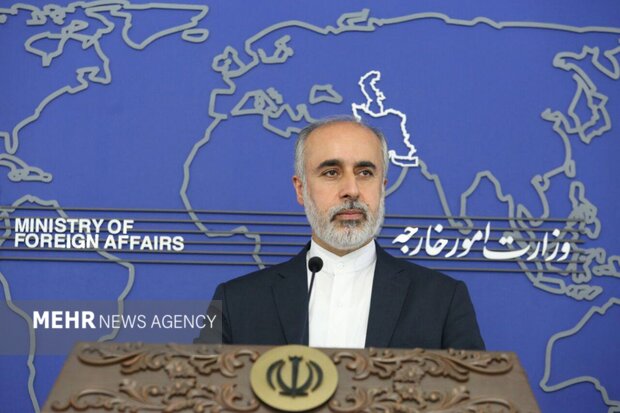



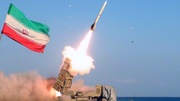
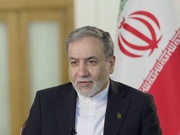
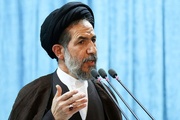
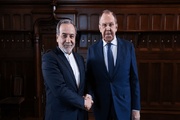
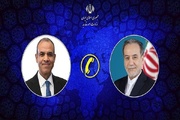
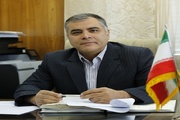
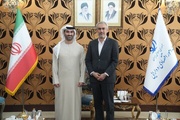









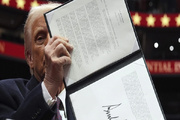


Your Comment